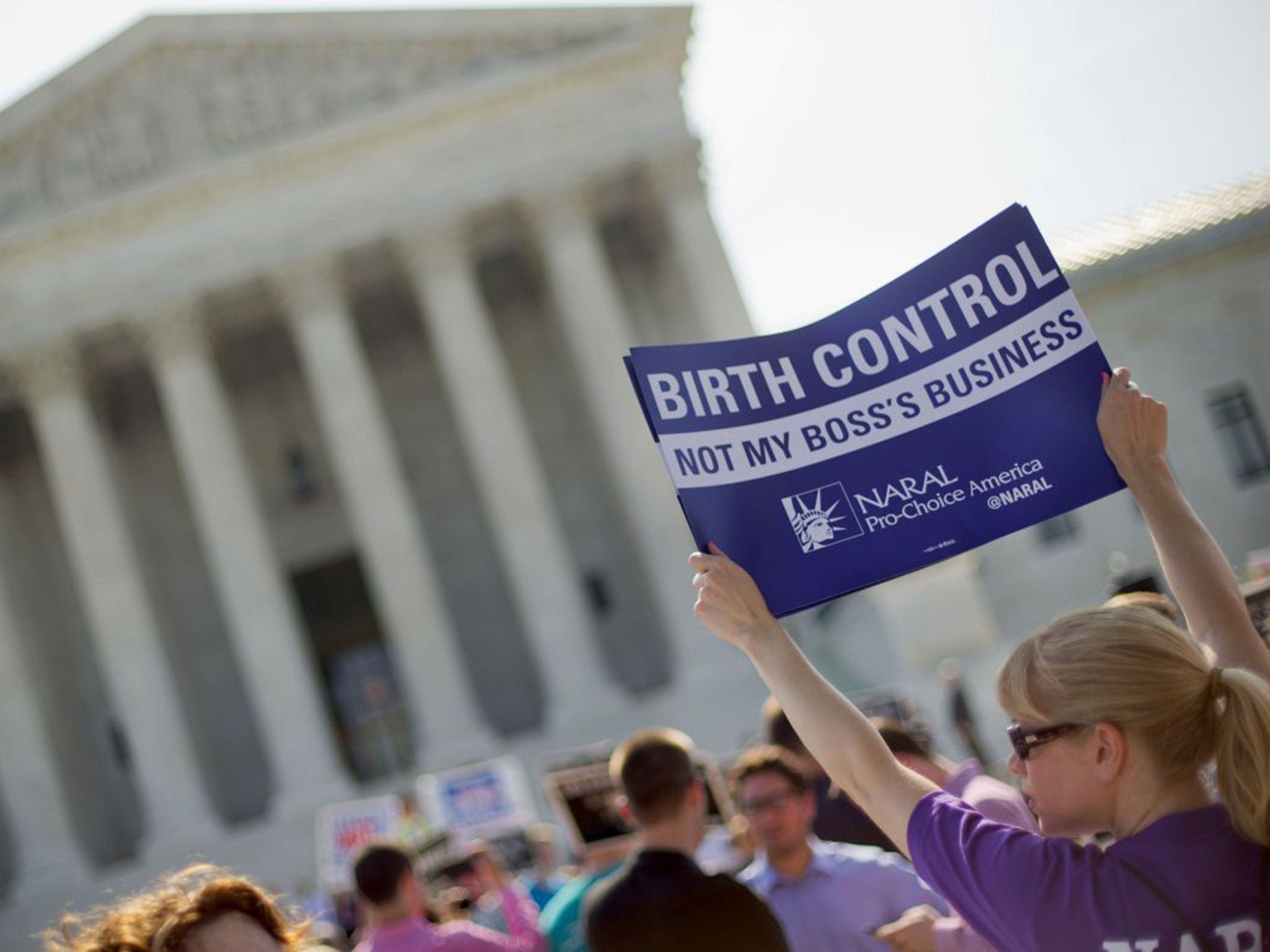'Hobby Lobby' ruling allows US businesses to object to health insurance coverage of birth control
Supreme Court judgment a victory for pro-life groups

Faith and religion inserted themselves squarely into American political discourse today as a divided Supreme Court ruled narrowly that corporations operated by owners with strong religious beliefs should not be obliged under President Barack Obama’s healthcare law to provide insurance coverage that includes benefits for contraception.
The 5-4 decision, with all four usually liberal justices dissenting, is a bruise on the face of President Obama’s healthcare law that is widely seen as his most important achievement since becoming president. It will be celebrated as a victory by the pro-life, anti-abortion lobby and open the door to possible flood of new suits.
The court held that obliging all companies, even those owned by devout believers, to provide free contraception for female employees is a violation of laws that protect freedom of religion. The principal case before the justices had been brought by Hobby Lobby, a national chain of craft shops owned by an evangelical Christian family.
Legal experts contended that the ruling essentially confers on corporations in America the ability to have religious faith, alongside other evidently faith-based institutions like churches and some charities. The majority ruling was read by Associate Justice Samuel Alito, who sits on the court’s conservative wing. It was supported notably by Chief Justice John Roberts who two years ago dismayed conservatives by joining the other side in a far more significant ruling which, had it gone the other way, might have led to the unraveling of Obamacare entirely.
But Justice Ruth Bader Ginsberg said in her dissent that the Hobby Lobby ruling might on its own have “potentially sweeping” implications because it will hinder the government’s efforts to ensure that the universal healthcare law is implemented consistently across the American workplace. “And it discounts the disadvantages religion-based opt outs impose on others, in particular, employees who do not share their employer's religious beliefs,” she argued.
Critics of the decision noted that while Hobby Lobby is owned by evangelical Christians, it could have far more troubling consequences for employees of companies owned by followers of churches like the Jehovah’s Witnesses or Christian Scientists, who could object to offering workers insurance for healthcare of any description.
The case was focused on particular forms of birth control which are seen by some as being roughly equal to an abortion, for example types of intrauterine devices, IUDs, that intervene after a woman’s egg has been fertilised but before it has had a chance to embed in her womb, or emergency, after-the-fact options like Plan B.
The majority ruling held that the government would have other ways of making sure that female employees working for companies such as Hobby Lobby are covered for contraceptive options either by paying for that portion of their insurance itself or arranging with insurance companies to offer it without asking the employees actually to pay for it.
Lawyers for the government had argued contraception choices are extremely price sensitive for a lot of women and limiting those options by offering religious-based opt-outs could endanger their health. Surveys for example have shown that women who might normally chose an IUD to prevent an unwanted pregnancy because they are known to be extremely effective, would often be put off if insurance no longer paid for it. The device can cost $1,000.
“Today’s decision jeopardises the health of women who are employed by these companies,” White House spokesman Josh Earnest said after the ruling came down. “We will work with Congress to make sure that any women affected by this decision will still have the same coverage of vital health services as everyone else.”
THE HOBBY LOBBY RULING – Q & A
What was the Hobby Lobby’s problem exactly?
Under Obamacare all companies over a certain size are obligated to offer health insurance to all their employees and, as part of it, coverage for birth control. Hobby Lobby, owned by an evangelical husband and wife, contended that that violated their religious freedoms. The court, with a small conservative majority, agreed.
How big a blow is this to Obamacare?
This only deals with a small sliver of the law and its implementation. The vast majority of companies still won’t be thinking twice about offering contraceptive coverage to employees. And there should be ways to ensure that employees of places like Hobby Lobby have coverage for birth control without their bosses getting the bill.
Why the furore?
This is the first time that corporations have been deemed, under federal law, to have faith. There is a danger that this will trigger an avalanche of companies wanting to use alleged religious faith as an excuse to escape their Obamacare obligations. For many, the religious zeal of Hobby Lobby’s owners is almost beside the point. This is just a new opening for conservative Obama-haters to undermine the healthcare law, Mr Obama and his legacy.
Join our commenting forum
Join thought-provoking conversations, follow other Independent readers and see their replies
Comments